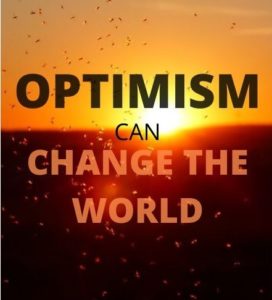Bill Gates: The Man Who Made People Care
 Ten years ago, Bill Gates spoke about the malaria epidemic in his TED talk, Mosquitoes, Malaria and Education.
Ten years ago, Bill Gates spoke about the malaria epidemic in his TED talk, Mosquitoes, Malaria and Education.
Why is that talk so significant?
Because, in it, Gates makes a prediction that has very recently come true – that we would finally have a working vaccine against malaria. He also reveals the key to his success, both with the non-profit organisation that he co-chairs, the Bill and Melinda Gates Foundation, as well as with Microsoft, for those that are listening closely enough.
Bill Gates has a great deal of positive attributes, both as a human being and as a businessman but, above all else, he is an optimist.
So how does optimism translate to success?
Optimism is a trait shared by many world leaders, particularly in big tech, such as Elon Musk and Jack Ma. Optimism leads to innovation, optimism drives ambitious dreams, despite there being no evidence that such ambitious dreams could possibly come true.
When Gates founded Microsoft, he imagined a time in which there would be a personal computer in every home, despite evidence to the contrary – computers were barely commonplace in offices and schools. But optimism pushes past restrictions and sets the mindset that anything is possible. That particular mindset was exactly what Gates needed to make his ambition a reality.
And what is more ambitious than working to eradicate malaria? One of Gates’ current projects through the Bill and Melinda Gates Foundation is to bring an end to one of the world’s life-threatening diseases, that statistics show killed nearly half a million people – most of them children – as recently as 2017.
Things are changing in the fight against malaria, thanks to leaders like Bill and Melinda Gates, but the changes have been slow and have not come without challenges.
It’s often hard for non-profit organisations, who rely on charitable donations to be able to carry out their vital work, to get people to care about an issue that is NIMBY (not in my back yard). And an even bigger issue seems to be that people aren’t as aware of the facts and figures than most of us would like to believe.
This was something that Gates realised too and has worked to change. He writes in his personal online blog:
“When Melinda and I first started this work, we were stunned by how little the world knew about how human health works—and especially about what health looked like in the poorest places. Today, our understanding is a lot deeper and more precise.” – Bill Gates.
Over the decade, awareness of global health issues, neglected diseases and the malaria epidemic has massively increased. But just because people are aware, that doesn’t mean that they will act to change it. Gates recognises this in his blog post:
“… if we continue to fund innovation, we can close those gaps…
“There’s a catch, though: technology is easy to predict. But progress doesn’t just depend on technology. It also depends on people—who are very hard to predict.
“Will we continue to decide that investing in innovation is worthwhile? And will we do what it takes to make sure these innovations reach everyone who needs them?” – Bill Gates.
Gates uses his optimism to make people care and to inspire people to make a change. The way he speaks in his TED talk, and the way he writes in his articles, is always positive. He never mentions a negative in the fight against malaria without instantly offering some evidence of progress or achievement. This is significant because, as a world leader, Gates inspires others and he undoubtedly knows that he can convince people, by the language he uses, to align with his way of thinking.
A little known factor that often prevents people from caring or taking action on some of the biggest issues in the world is that it looks and seems hopeless – people think, what could I do to make a difference? Malaria kills so many people and for all the leaps in progress, there are also set-backs. However, in his TED talk, Gates points to statistics, citing hundreds of thousands of deaths and then immediately points out the progress that has been made over the past ten years. He also acknowledges that it’s not just massive, funded R&D projects and medical advances that make a difference. We all can. Gates gives people hope and a reason to be invested in the malaria epidemic – they can do something to help.
Unsurprisingly, Gates is very aware that statistics and data are often a convincer. Data has driven interest in and commitment to tackling the malaria epidemic because it’s solid proof of just how many people died from a preventable and treatable disease. Unfortunately, it’s often data rather than passionate speeches, that drives reality home.
A push for data and monitoring the effectiveness of vaccines and preventative measures has recently hit the news, with leaders in the fight against malaria stating that data will be the key that ensures efforts are focused where they are needed.
If a massive change in world health is to occur, the effort needs the hearts of the entire globe to be invested in the outcome. But what is also emerging is that it’s going to be the data captured, as well as hearts, that may finally end malaria.

By Georgina Bull
Senior PR Executive








